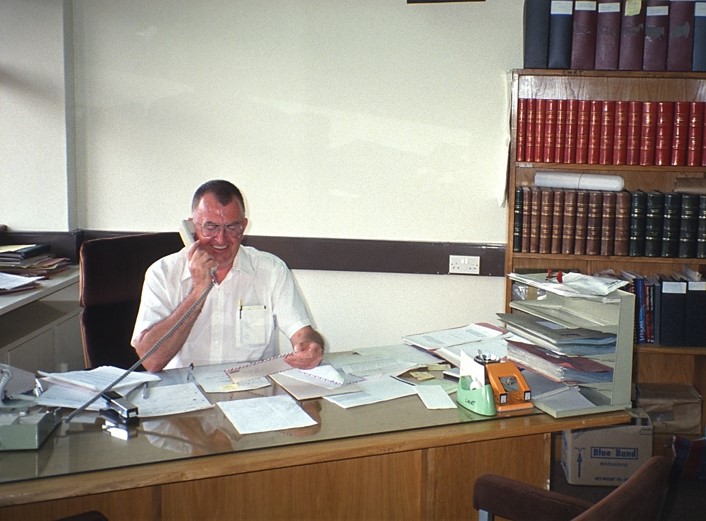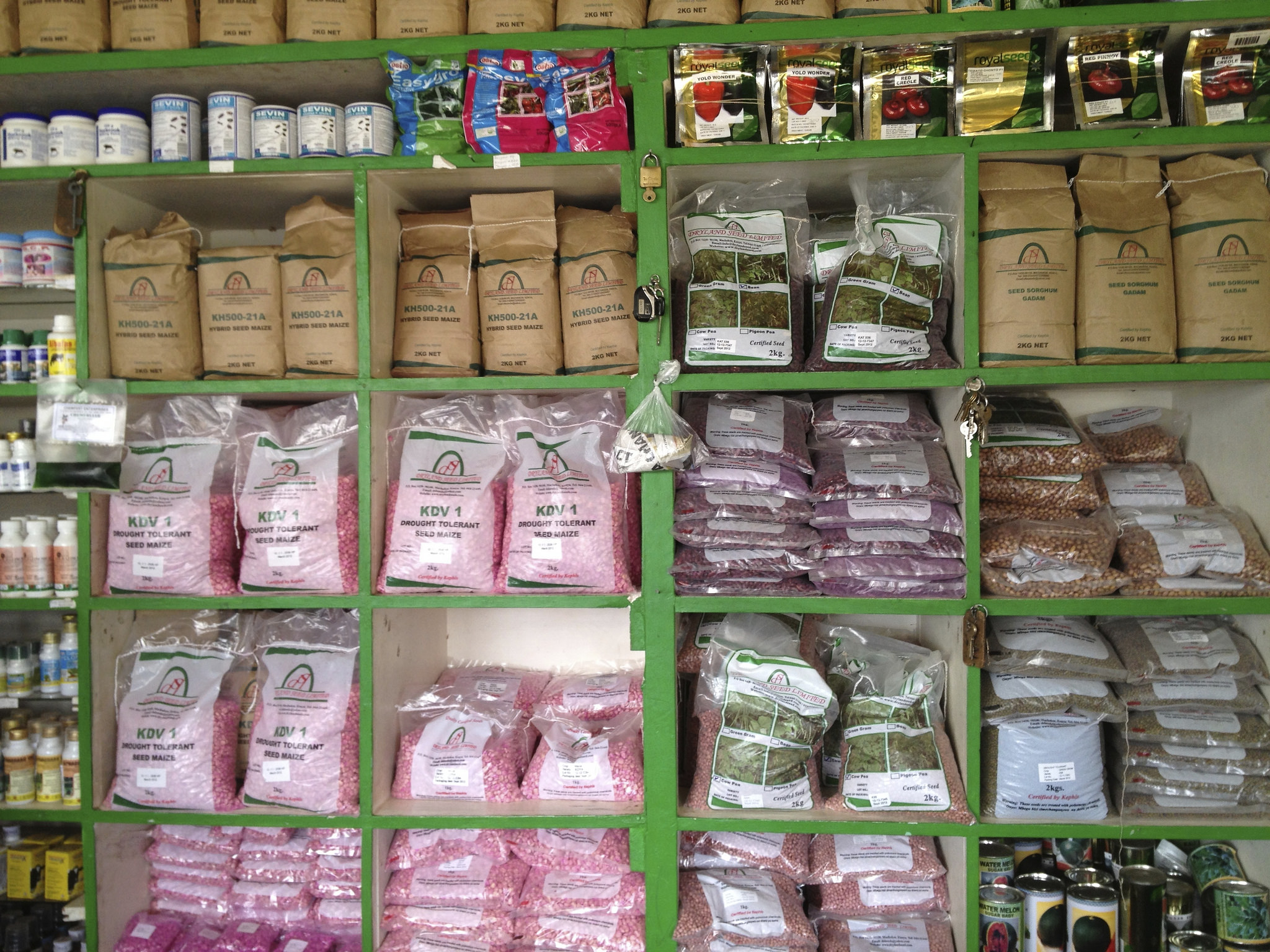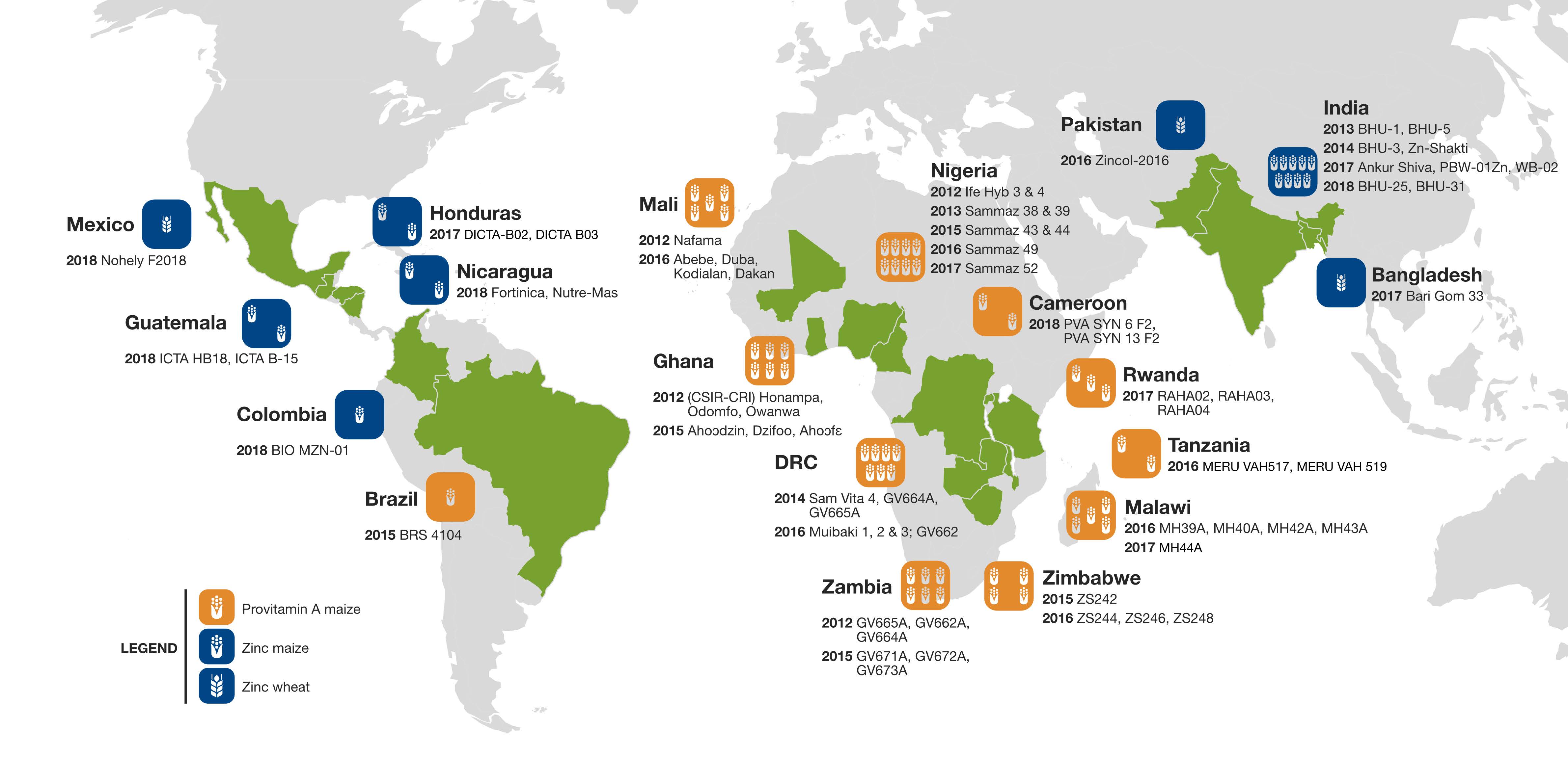
With sorrow we report the passing on June 14 of Anthony F. E. (Fred) Palmer, former maize agronomist and physiologist who contributed notably to the International Maize and Wheat Improvement Center (CIMMYT) networking and capacity building during crucial periods.
A British national, Palmer joined CIMMYT as a post-doctoral fellow in 1968 and retired from the center in 1996. With undergraduate studies in Agronomy at the University of Reading, Palmer completed masters and doctoral degrees in Crop Physiology at Cornell University. His early years at CIMMYT headquarters included work in maize physiology, agronomy and training.
In 1972 Palmer moved to Pakistan, serving as a production agronomist in that key Green Revolution setting until 1978, when he returned to Mexico as a training officer. “Fred was a true gentleman as a researcher and trainer,” said Stephen Waddington, retired CIMMYT maize agronomist who worked with Fred in Africa. “He was a mentor and friend to many junior CIMMYT staff, including myself, and countless trainees and visiting scientists from partner countries.”
Capitalizing on his experience and accomplishments, in 1985 CIMMYT posted Palmer to Nairobi, Kenya, as the team leader of the East African Cereal Project, funded by the Canadian International Development Agency (CIDA). During the project’s third phase, Palmer helped to establish and guide an entry-level crop management training program, in conjunction with the Kenya Agricultural Research Institute (KARI) and Egerton University, targeting maize researchers from eastern and southern Africa. Based at the university’s Njoro campus, the effort included construction of training facilities and guest rooms and Palmer successfully prepared Egerton administrators and faculty to take over the program, according to Joel Ransom, a North Dakota State University professor who served as a CIMMYT maize agronomist in Asia and sub-Saharan Africa.
“Scores of young agronomists mastered the fundamentals of on-farm research through that program,” Ransom said. “Palmer’s mentoring, training, and leadership greatly advanced the professional development of African maize and wheat scientists.”
Matthew Reynolds, CIMMYT distinguished scientist and wheat physiologist, recalls talking to Palmer about the latter’s efforts to apply fledgling tools for measuring photosynthesis in the field, a topic in which he had specialized at Cornell. “Fred was a very kind and unassuming man who treated everyone with respect, qualities that made him a great training officer and a well-regarded colleague,” said Reynolds.
Palmer firmly believed that national partners needed the capacity to train staff, particularly those fresh out of university studies, strengthening both their knowledge and professional linkages.
“By bringing young scientists together and working with them as a multidisciplinary research team,” Palmer wrote in a report on CIMMYT training in eastern and southern Africa, “it is anticipated that these scientists will learn to value each other’s work as essential to successful research.”
The CIMMYT community sends its warmest condolences to the Palmer family.
 Climate adaptation and mitigation
Climate adaptation and mitigation 
